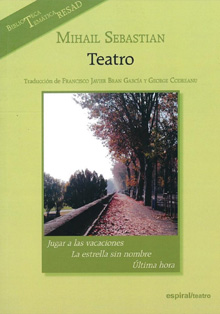Jacqueline Hellman
Professor of International Law at the European University
Near the end of the summer of 1944, the Allies met over the course of several weeks at Dumbarton Oaks with the idea of creating an international organisation for the purpose of maintaining peace and security. Less than a year later, on 26 June, the Charter of the United Nations was adopted, the first article of which stipulated an essential objective: “to take effective collective measures for the prevention and removal of threats to the peace, and for the suppression of acts of aggression or other breaches of the peace; and to bring about by peaceful means, and in conformity with the principles of justice and international law, adjustment or settlement of international disputes or situations which might lead to breaches of the peace”. This was followed on 9 December 1948 – one day before the proclamation of the Universal Declaration of Human Rights – by the adoption of the Convention on the Prevention and Punishment of the Crime of Genocide. This was a success for that part of the international community that had been striving – in recent times – to create a legal tool capable of criminalising acts as terrible as those committed by the Nazi regime during the Second World War.
In the light of all these considerations, it is interesting, in my opinion, to recall the initial starting point that takes us back to that glorious 9 December 74 years ago. In short, it is a question of highlighting the decisive turning point that triggered the adoption of the aforementioned legal tool and, in this sense, it is clear that the aforementioned war is a crucial factor. In view of the above, it is necessary to mention the figure of Winston Churchill, since – in a radio message broadcast by the BBC – he indicated that the acts committed by the Nazis had no name; in a way, he emphasised the seriousness of the acts perpetrated by Hitler’s regime; in short, he stressed their singularity, which led him to consider that they had not received the relevant legal qualification. This statement, which for many must have been a purely anecdotal assertion, had a great impact on Raphael Lemkin, a Polish jurist who was particularly interested in the perpetration of atrocities committed throughout history. In fact, Lemkin intuitively set out to find a term that would be capable of encompassing conduct aimed at destroying certain types of groups and which, of course, would criminalise the massacres perpetrated by the Nazis. In this way, he coined the term genocide, which is nothing more than the result of the combination of the Greek word genos, meaning race or tribe, and the Latin word cide, which refers to the verb caedere, meaning to kill.
That said, his contribution does not end here. After creating the aforementioned term, he decided to set himself an even more complex objective than the previous one: to convince the international community of the need to adopt a legal tool aimed at sanctioning and preventing conduct that could be qualified as genocidal. In his own words: “it was essential to adopt a law that would cover racial and religious killings and that would be supported by the international community”. So Lemkin began to negotiate tirelessly with delegations from different countries until this was achieved. It is worth remembering that his dedication to the project was such that, a few years later, he collapsed – on 42nd Street in New York – which ended his life.
In the light of the above, there is no doubt that Lemkin’s efforts had a magnificent result. In fact, the effects deployed by the 1948 Convention have reached the agitated century in which we find ourselves, insofar as the Rome Statute (the treaty establishing the International Criminal Court) has incorporated article 2 of this legal instrument, which contains the elements that must be observed in a given situation in order for unlawful acts to be qualified as genocidal. In line with all this, it should be noted that the aforementioned Convention has recently been brought up on the occasion of the complaint filed by Gambia before the International Court of Justice following the unfortunate actions implemented against the Rohingya by the State of Myanmar. Consequently, the legal tool adopted in 1948 can be brought up today in the event that serious acts are likely to be classified as genocide, a crime which, let us not forget, was committed more than seventy years ago.
Therefore, 9 December is an important date in the field of international criminal justice, being considered, as it should be, the day of commemoration and dignification of the victims of the crime of genocide and its prevention. It is, in short, a date that reminds us of a terribly sinister moment in time which, nevertheless, pushed the international community to move forward and to mobilise in the face of particularly serious conduct and violations of humanity, since it culminated in the adoption of a legal agreement that not only criminalises this type of act, but also – in addition – indicates the measures that must be taken to prevent its repetition.
© All rights reserved





